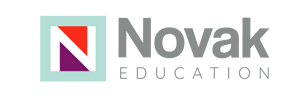The more I learn about the future of education, the more convinced I am that Universal Design for Learning (UDL) is the most effective way to transition to the Common Core.
The Common Core was built on a core belief that “it should be clear to every student, parent, and teacher what the standards of success are in every school.” That is a principle I wholeheartedly stand behind. All citizens in this country have a right to know what students are learning and why they are learning it. Although this may seem progressive, it’s not. Freedom isn’t innovation – every student in this country should be free to access the same high-quality education, regardless of where they live.
UDL is built on decades of research that suggests that learning will not occur unless recognition networks are activated – in short, students, parents, and teachers all need to know “what” students are learning in school. Granted, the “what” of the Common Core is different from previous state standards, but there are some similarities. There are connections between the past and the present and UDL educators will make it their mission to find the connections and “highlight patterns, critical features, big ideas, and relationships” (UDL Guideline 3.2) between what students already know and what they are expected to learn in the Core. Helping the public to see that the wheel was not totally reinvented will ease the shift.
Also, when transitioning to the Core, it’s important to “activate or supply background knowledge” (UDL Guideline 3.1) on why the Common Core was designed and adopted. If students and parents know “why” we transitioned to the Common Core, they are more likely to comprehend the benefits of nationwide education standards.
As an educator, I am passionate about both the Common Core and UDL, and I challenge other educators to embrace both. The principles of UDL will help you, not only to adopt the Common Core and implement it in your practice, but to engage students and parents in meaningful discussions about the benefits of the Core. I strongly believe that if educators stood behind the Core, the public would soon follow.
Keep Learning:



